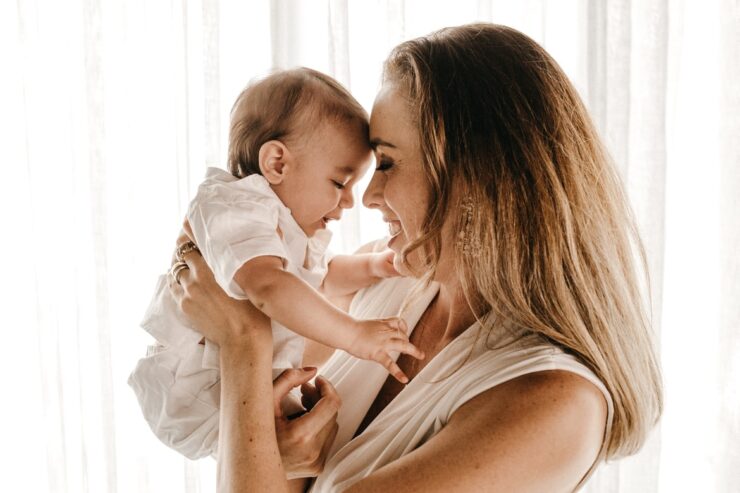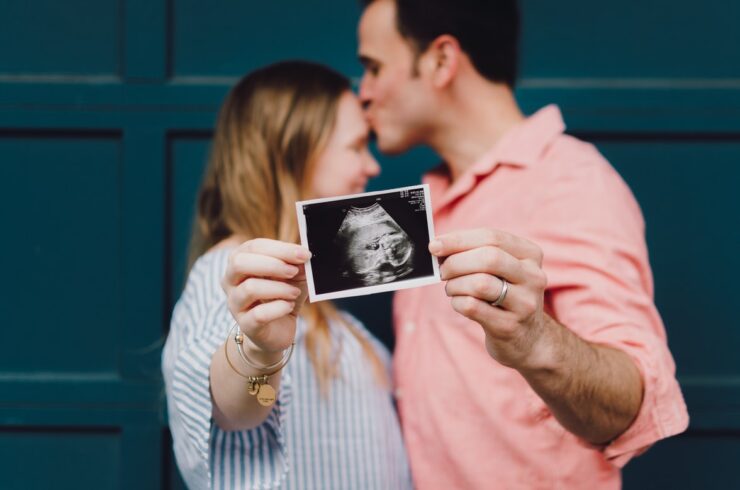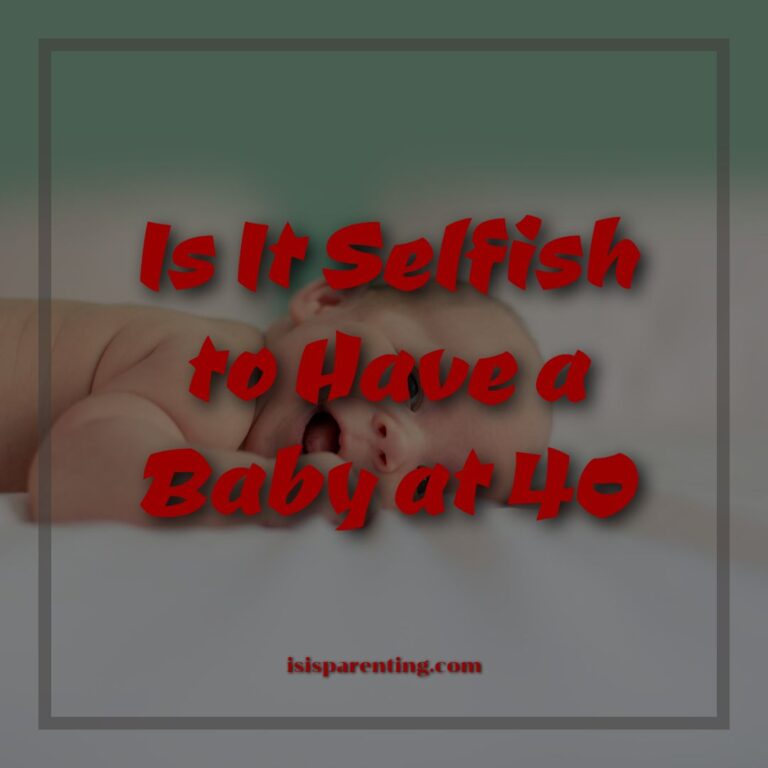In recent years, we have seen many changes around us, not considering the technological advancements here, but talking about the evolution of women’s careers, the increase in the rate of marriages in older people, co-parenting or single parenting phenomenon, and more. In the USA, the birth rate has declined in women under 35 and tends to increase in those above 40. All these facts make us wonder, “Is it selfish to have a baby at 40 or not?”!
Having a baby or not at any age of life is one’s matter. This decision is fluctuated by various factors like financial status, women’s career, health stability, housing, relationship status, lifestyle, and more. And definitely, I am not going to poke those! The matter of concern is whether having a baby later on in your life is the right thing or not. You might find debates over it, but I will write about my personal experience regarding this topic.
Have a Baby in your Forties

At the age of 40, I faced so many myths, negative comments, and opinions about my baby choice. But, I stayed calm and didn’t let those myths trigger me, so I decided to visit a doctor to get further details, and this was one of the best decisions I ever made. Before you decide that, some factors need your prior consideration, so let’s open up the bottle below!
1. Degree of Fertility
When a male is born, the sperm cells get replenished for a lifetime, meaning the production remains constant. But, that’s not the case with egg cells. In other words, a woman has no regeneration of egg cells from innate till death, and unfortunately, the total count decreases with an increase in age. It is right to say that the number of egg cells is inversely proportional to age count. Let’s elaborate on the following statements with the help of facts!
In this developing world, there has been a lot of research and surveys done which determines the percentages of pregnancy rates, miscarriage rates, etc. A couple who’s no more than the early thirties are more likely to get pregnant in one menstrual phase by unprotected intercourse. The chances of miscarriage in such cases are as low as 10%, compared to the couples in their late 30s or above.
After the age of 38, the primary factors move towards declination, including: (1) fertility: capability of individual’s to give birth to an offspring, (2) viability: the capability to being alive; it refers to the expected growth of fetus outside the uterus, (3) egg quality: refers to euploid eggs. After the age of 40, there will be only a 10 percent chance left to conceive in the first menstrual phase, and at the same time, the abnormalities risk increases too. The risk of miscarriages reaches 50%, which is miserable!
Down syndrome also becomes visible once in every 85 or more pregnancies, which is exceptionally high because, at the age of 25 or below, this risk appeared one time in 1350 pregnancies. The US Obstetrics and Gynecology college, as ACOG, states that pregnancy is impossible for couples who’re above 45. There would be a need for fertility inventions and technologies if a couple did not conceive for more than a year of unprotected intercourse.
2. Complications

Undoubtedly, technology faced advancements in medicine, making pregnancy and healthy births possible at the age of 40 and even more. However, “complications” is an absolute term under this discussion. Studies have revealed that pregnancy becomes more and more complicated with age.
What is meant by complications? In simple words, it refers to an increase in risks! For instance, the risk of diabetes, hypertension, preeclampsia, and more gestational diseases increased after 35. Over that, premature birth, low birth mass, preterm birth rate, and more become prevalent in late-age pregnancies.
Why is this so? This is because the older eggs become more prone to chromosomal abnormalities, which in due course increase those rates. In medical terms, this age is considered advanced paternal age. At this age, couples are advised to have prenatal genetic testing to pre-determine the chromosomal abnormalities, genetic issues, congenital disabilities, etc.
3. Labor Risks
Typically, people think that vaginal deliveries are less problematic than cesarean sections, but that’s not the case at advanced paternal age. The C sections are more manageable and more common, with the rate of 3.6 x, in women at 40 or more. Women who already had preceding births have a 2x chance of needing a C section.
FAQs

Is it a bad idea to have a baby at 40?
Yes! Having a baby at 40 or above is not a good idea because of many risks associated with pregnancy and labor. After 40, the risk of diseases like blood pressure, diabetes, hypertension, and other gestational ailments increases. The rate of chromosomal abnormalities, congenital disabilities, and genetic problems tends to become higher too. According to ACOG, it is impossible to have a baby after 40.
How Can I Prevent a Miscarriage?

Some adaptable ways help you prevent miscarriage, but the most recommended one is to take a folic acid tablet daily before conception. Besides, you can adopt some mechanical practices like exercise, healthy diet plans, stress-relieving habits, weight management, and more. Please do not smoke (active or passive, both) during pregnancy!
What week are you most likely to miscarry?
According to surveys and medical researches, miscarriages are more likely to occur in the first trimester. The first trimester refers to the early pregnancy phase or the first twelve weeks. However, there is upto a five percent chance of miscarriage in the second trimester, which starts from the 13th week onwards. Make sure to take good care of yourself!
Pregnancy At Advanced Paternal Age: Yes or No?

In my opinion, the best time to get pregnant is when you’re financially, physically, and mentally stable. But, it is not a good idea to be pregnant at the age of 40 or more because there are numerous risks associated with it. However, the decision is yours but make sure to visit the doctor first, and even if you can’t afford that, search for Dr. Google, but please never take life for granted!
Count your blessings daily!

